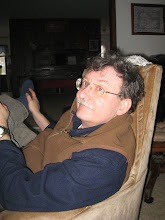I submitted this to the Dispatch on Friday morning but it's too long for a Letter to the Editor, its not my turn for the Clergy View and they have already printed some excellent guest columns that were more eloquent. I will at least blog post it. (Printed in Dec. 4 Dispatch.)
I want to thank the Dispatch for printing Superintendent Jerry Walseth’s words that urge us to look ahead at what we are going to do for our future. He is asking for community members to get involved, for new volunteers to come forward and he is inviting the business community to do some brainstorming; for all of us to be part of the solution. His message needs repeating and highlighting.
As considerate readers, let me offer an analogy , imperfect as it is, from my own experience.
In 1997 I lived in Ortonville, one of the many Minnesota communities that experienced that early spring flooding. I saw a range of responses. Let me offer these four observations.
1) There were those who acted, quite independently, to protect their own property and interests. They did their own sandbagging and encircled their houses. While I applaud their initiative, it was too narrow. They were interested in only protecting their own turf. It seldom worked.
Others came together, cooperatively, and would sandbag entire blocks or groups of homes, even if the property owners were living out of the area. They looked out for each other. They benefited from each other’s expertise and energy. They tended to have more success and in the process, created deeper levels of community.
But then, there were a few exceptional stories that made headlines. We heard of a small community that came together and built dikes and sandbags around the whole town. They were an island of community surrounded by those threatening waters. I would hope that our Brainerd area could lean toward the larger image of all of us working for the good of the whole community, far beyond individual turf protection;looking out for all of us, for the best future we can create in these circumstances.
2) In that flood experience there was the even more threatening emotional flood. We certainly have that happening here today in the full range of emotions. Part of the community work was to have venues for listening and caring as lives were relocated, disrupted, and grief was experienced.. That too was a deliberate response of the community. It was being “people” together. Whether that gets formally done or not, lets model that sensitive, respectful spirit for those who will be losing jobs, traditions, experiences and school identities. This is not just a civic matter to me, but a moral and spiritual imperative.
3) In Ortonville, as I’m sure other communities had also, we had weekly coordination team meetings. (The disaster response team.) It was a cross section of community leadership. We needed accurate information. We needed to know what responses were possible and the resources available. Who is doing what, when, where, how? Can we create these forums here in the Brained School District community? Many of us do not know what the state or school guideline are for providing volunteer and financial support. Civic and service groups, faith communities, etc, could benefit from such a shared problem solving process. None of us, individually, has the solutions. Who might convene such a group? Could one of our churches host such gatherings? Ideas?
4) Care for the care givers is absolutely critical. They need to be able to the work as best they can. In Ortonville, while my wife and I joined high-school students, fire department workers, and a host of others on the sand bag lines sometimes late into the night, others provided childcare or other services. I was blessed to have church officials, my bishop and other pastors just calling to check in with me. Again, it was all about support. We have a school board and other school personnel that are working long and anxious hours, making agonizing decisions on our behalf. There is nothing easy about this. They need our active support and our encouragement, thoughts, prayers.
The actions we make in the months ahead, will determine not just the shape and spirit of our school, but our community. We all know what kinds of words will help and what words will hinder and hurt. We can personally choose to limit the flood damage of words that would hurt us, and be the healthy neighbors that have found new, creative ways to work together. The future and reputation of our community is being made now, one way or the other. Let’s be the exceptional story of how to move ahead!
Subscribe to:
Post Comments (Atom)


No comments:
Post a Comment